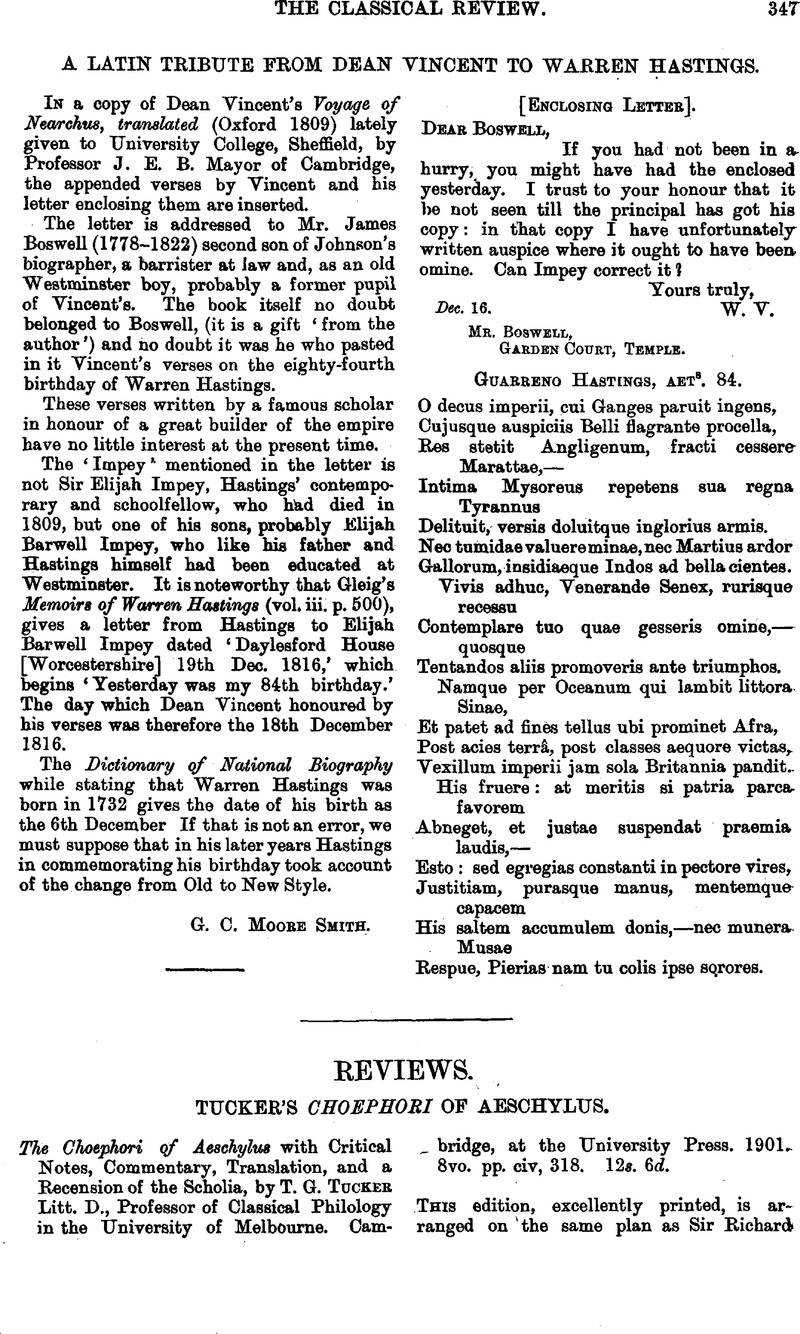No CrossRef data available.
Article contents
Tucker's Choephori of Aeschylus - The Choephori of Aeschylus with Critical Notes, Commentary, Translation, and a Recension of the Scholia, by T. G. Tucker Litt. D., Professor of Classical Philology in the University of Melbourne. Cambridge, at the University Press. 1901, 8vo. pp. civ, 318. 12s. 6d.
Review products
Published online by Cambridge University Press: 27 October 2009
Abstract

- Type
- Reviews
- Information
- Copyright
- Copyright © The Classical Association 1902
References
page 348 note 1 C.R. 1890 D. 105.
page 348 note 2 The reading of the schol.
page 348 note 3 Plat. Phaedo 107 D.
page 348 note 4 M. Schmidt ; χρὀνίζουσα (Schuetz) or χρονίζοντα come to the same thing.
page 348 note 5 Schuetz for ἄκραντος.
page 348 note 6 Quoted by Suid. s.v. παρπόδα.
page 349 note 1 Camb. Univ. Reporter Dec. 4, 1900.
page 350 note 1 This he explains in the old way, and accounts for ![]() by the remark that ‘the Scythian police (
by the remark that ‘the Scythian police (![]() ) had been established at Athens from B.C. 480.’ Possibly; but would Aeschylus make his Chorus cry for the police?
) had been established at Athens from B.C. 480.’ Possibly; but would Aeschylus make his Chorus cry for the police?
page 351 note 1 I think with Schuetz it ought to be ![]() .
.
page 352 note 1 The corruption is of a common type, as ![]() for
for ![]() in Eur. Alc. 226.
in Eur. Alc. 226.
page 352 note 2 ![]() M, but altered from
M, but altered from ![]() : I still think it should be
: I still think it should be ![]() .
.
page 352 note 3 C.R. 1898 p. 348.
page 352 note 4 The same consecution as in Supp. 857–9 = 867–9, Ag. 993–5 = 1007–9.
page 354 note 1 The true reading, strange as it may look, I now believe to be M. Schmidt's νηλεῶς.


